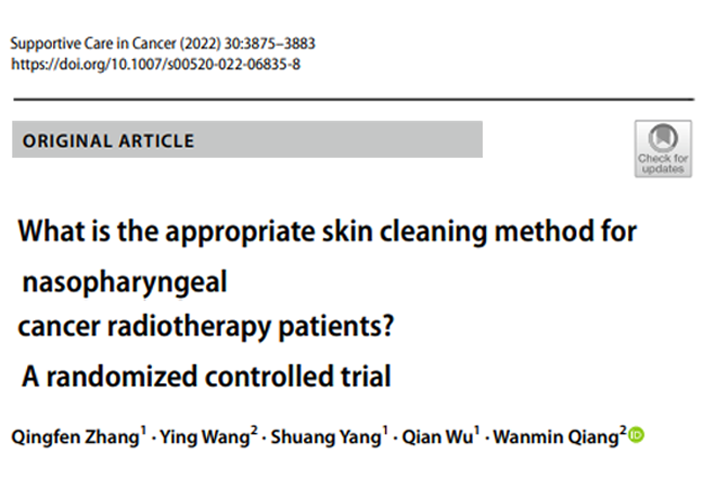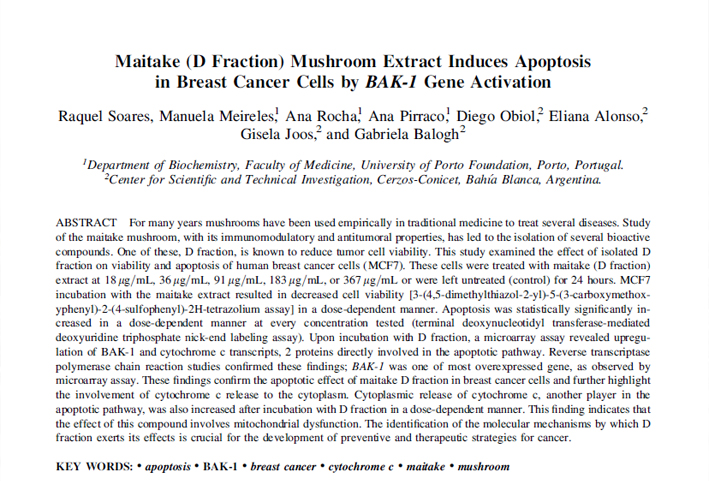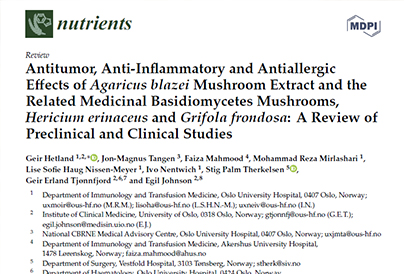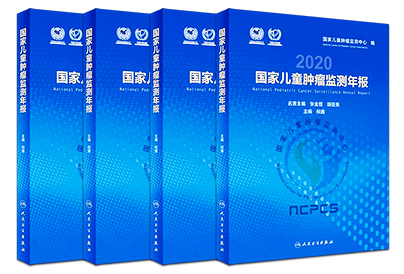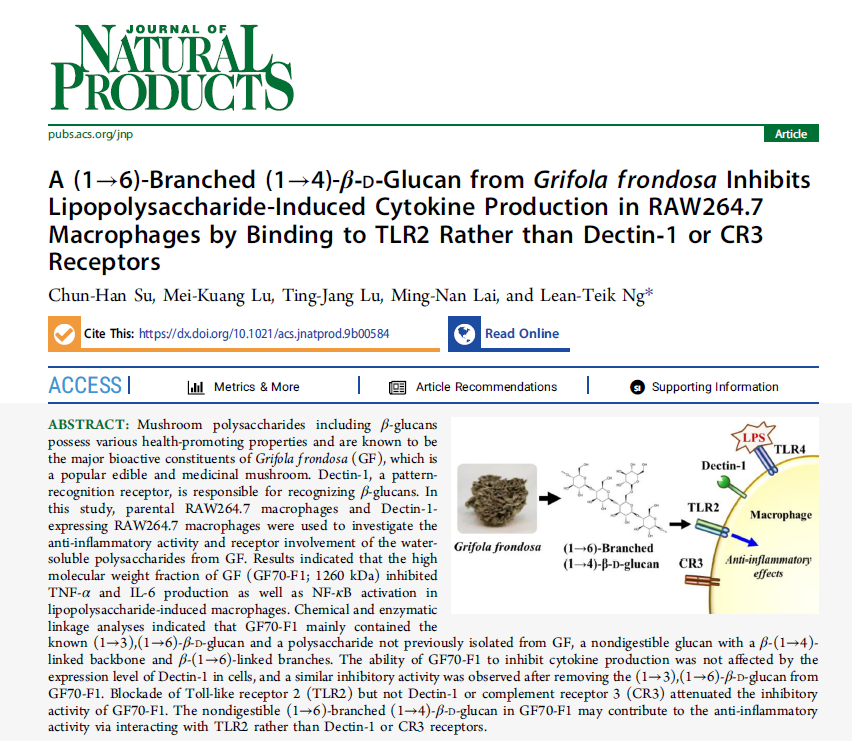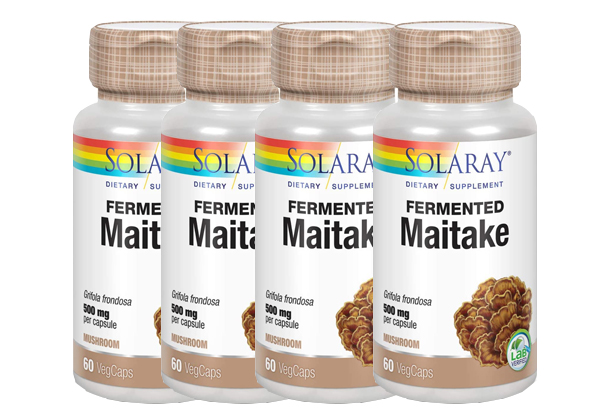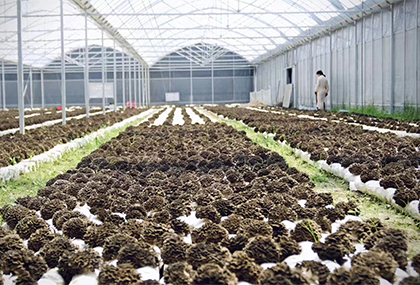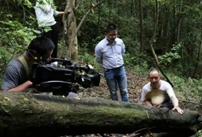Pancreatic cancer is a malignant tumor of digestive tract with high malignancy and difficult diagnosis and treatment. Among them, pancreatic duct adenocarcinoma (PDAC) accounts for more than 95% of all pancreatic cancer.
In recent years, the incidence rate and mortality of pancreatic cancer have increased significantly. The early diagnosis rate of pancreatic cancer is not high, and it is often in the late stage when it is found. At this time, cancer cells have spread. Although some chemotherapy drugs are effective, they usually produce drug resistance, and cancer immunotherapy is also difficult to play a role. The 5-year survival rate of pancreatic cancer is less than 7%, which is the worst malignant tumor with the worst prognosis. Therefore, it is also known as the "king of cancer".
According to the latest data of WHO, pancreatic cancer is the seventh cancer in China in 2020 (120000 new deaths are expected in 2020), and the sixth cancer in China in terms of deaths (120000 deaths are expected in 2020).
On June 2, 2022, the research team of Grossman School of Medicine of New York University published in the international top oncology journal Cancer Cell, entitled: Exercise Induced Engagement of the IL-15/IL-15R α The research paper of axis Promotes Anti Tumor Immunity in Pancreatic Cancer.
The study found that aerobic exercise can reprogram the immune system, inhibit the growth of pancreatic cancer tumors and enhance anti-tumor immunity. The study also revealed the dependence of the anti-tumor and immune activation effects of exercise on the IL-15 signal pathway.
This study demonstrated that pharmacological activation of IL-15 can improve the survival of mouse models and increase the sensitivity of pancreatic tumors to immunotherapy and chemotherapy. These findings have identified a potential exercise/immune approach for the treatment of pancreatic cancer.
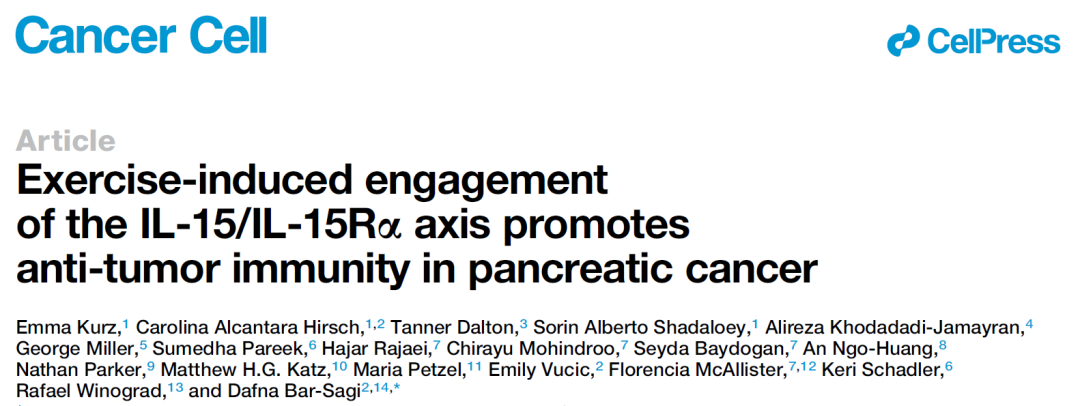
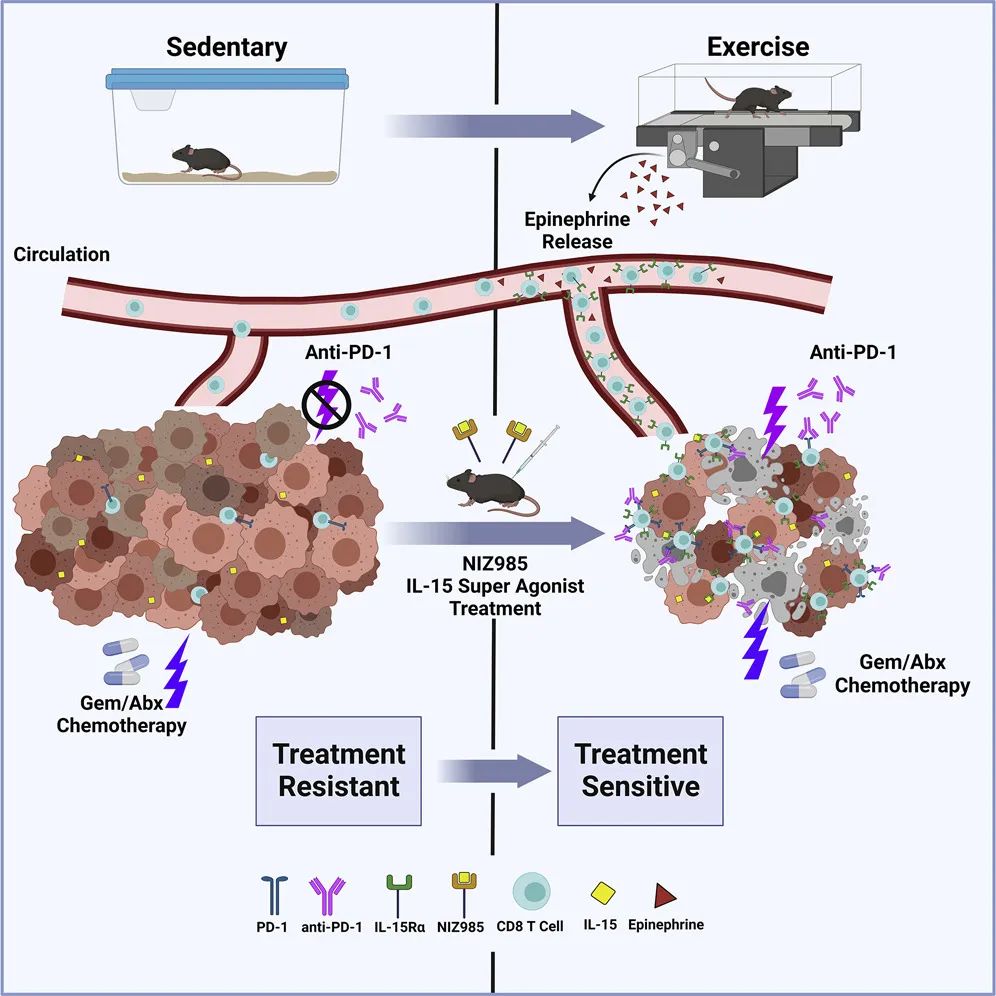
Exercise can promote the survival of IL-15 sensitive CD8 T cells, and double the number of them homing into mouse pancreatic ductal adenocarcinoma (PDAC) tumors. This effect of T cells has been proved by other studies to be able to kill cancer cells.
In this latest study, the research team used a low intensity treadmill to run to simulate aerobic exercise, and let the mouse model with slowly progressing pancreatic ductal adenocarcinoma (PDAC) run for 30 minutes five times a week. The results showed that this exercise effectively alleviated the occurrence of tumors, and the tumor formation rate was reduced by 50%. In another group of mouse models, the mice began to exercise 12 days after tumor transplantation, resulting in a 25% reduction in tumor weight. These results indicate that aerobic exercise can play an anti-tumor role in the initial stage and progression of pancreatic ductal adenocarcinoma.
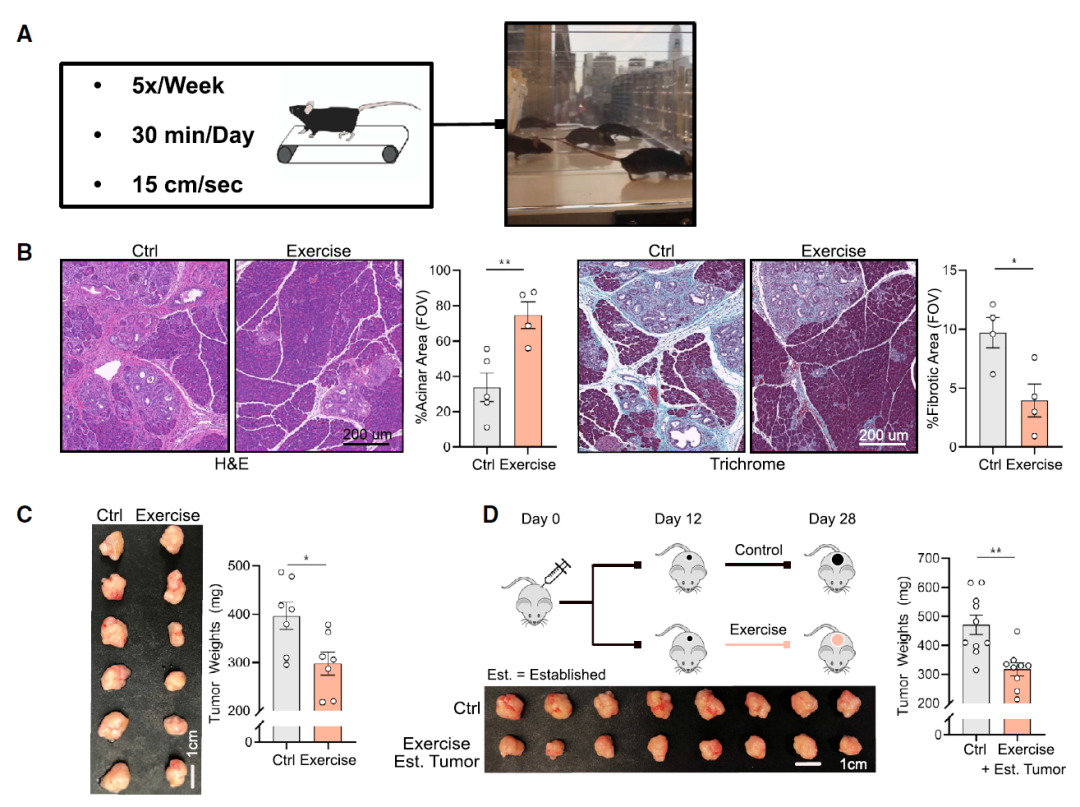
Next, the research team cooperated with researchers from MD Anderson Cancer Center to verify in human pancreatic cancer patients. They found that those patients who exercised before pancreatic cancer resection had more CD8 effector T cells. These T cells expressed a protein called granzyme B (GZMB), giving them the ability to kill tumor cells. Another clinical trial started in 2017 showed that patients who exercised and had more CD8 effector T cells had a 50% higher 5-year survival rate.
Emma Kurz, the first author of this paper, said that this study is the first to show how aerobic exercise affects the immune microenvironment in pancreatic tumors. This study helps to reveal that the activation of IL-15 signal transduction in pancreatic cancer may be an important treatment method in the future.
In the past few years, as the role of IL-15 signal in tumors has become increasingly clear, some researchers have tried to treat cancer by direct infusion of IL-15, but unfortunately, this increases the risk of systemic inflammatory damage. Later, some studies began to focus on the IL-15 receptor protein on the surface of T cells and NK cells - IL-15R α。 IL-15 and IL-15R α The relationship between them is like a key and a lock. There are new drug candidates that transmit information to activate target cells by mimicking these "key and place" interactions.
The pharmaceutical giant Novartis has been developing a "super agonist" drug, NIZ985, to enhance IL-15/IL-15R α Pathway signal to reduce the possibility of harmful inflammatory effects. However, this method has not been tested in a large number of pancreatic cancer patients.
In this study, they found that both aerobic exercise and the use of NIZ985, a super agonist developed by Novartis, can improve the effect of chemotherapy and immunocheckpoint inhibitor (anti PD-1 monoclonal antibody).
Immunocheckpoint inhibitors have changed the pattern of cancer treatment, but have no effect on pancreatic ductal adenocarcinoma. In this study, they found that the use of anti-PD-1 monoclonal antibody alone could increase the number of IL-15 sensitive and tumor killing CD8+T cells in mouse pancreatic tumors by 66%. When combined with exercise, it increased by 175%. In addition, the research team also found that the combination of NIZ985, a super agonist of IL-15, and anti PD-1 monoclonal antibody could improve the survival rate of mice with advanced pancreatic cancer by 100%.
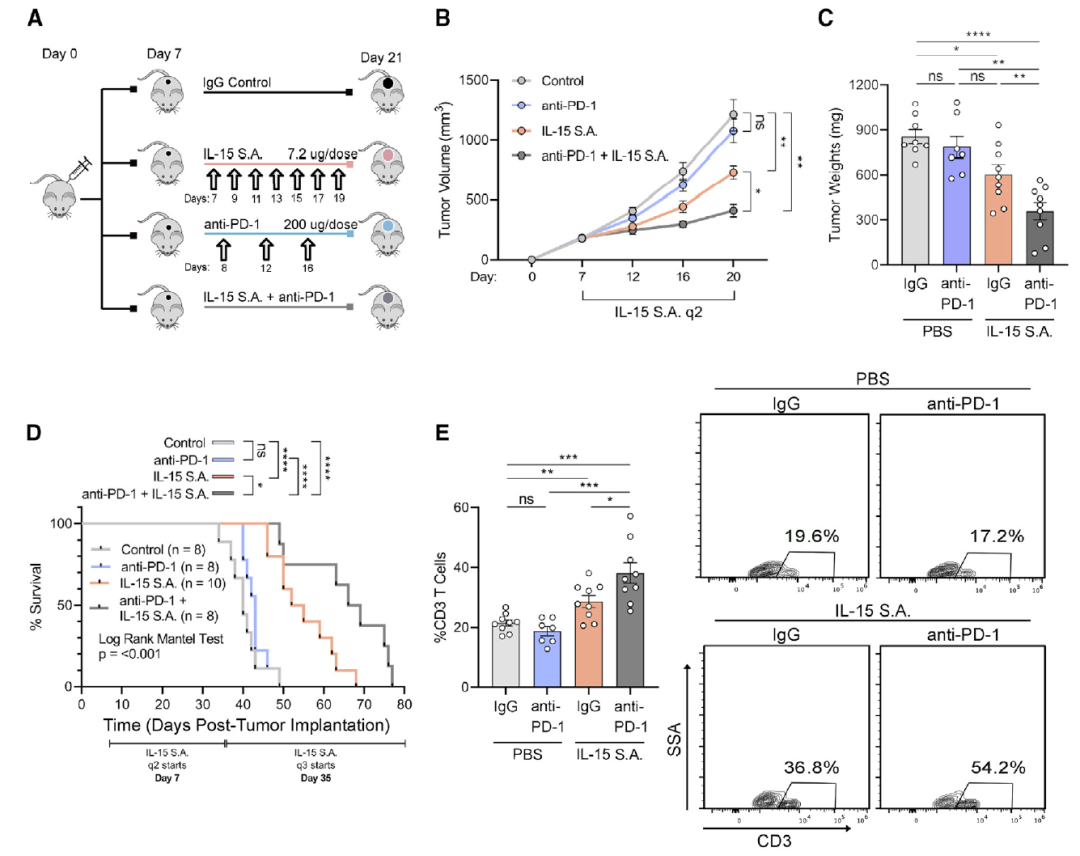
Dafna Bar Sagi, the leader of the study, said that this study showed that exercise and related IL-15 signals could improve the response of drug-resistant pancreatic cancer to immunotherapy. Even low-intensity exercise can profoundly change the tumor microenvironment, which also shows the potential of exercise in the treatment of pancreatic cancer, a deadly tumor.
It is reported that based on this research result, the research team is cooperating to carry out a human clinical trial to evaluate the immune effects of exercise on pancreatic cancer patients. In addition, the research team plans to continue to explore the effect of the combination of IL-15 super agonist and chemotherapy drugs on pancreatic cancer.
Paper link:
https://www.cell.com/cancer-cell/fulltext/S1535-6108 (22)00217-3
Source link:
https://www.medsci.cn/article/show_article.do?id=a6d4e4590125



